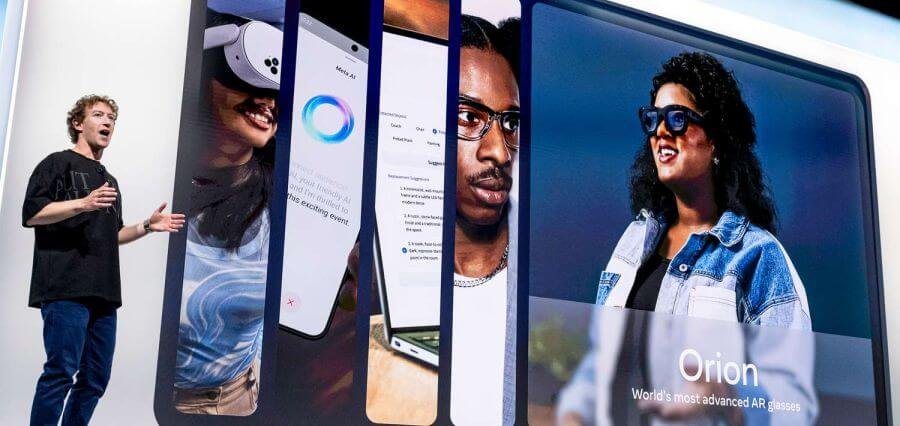Meta, formerly known as Facebook, is doing a lot in the area of augmented and virtual reality to change some of the factors surrounding the really ambitious vision for Meta’s metaverse. No more reliance on full-fledged virtual reality, Meta is now sparking excitement through smart glasses, specifically now with the recent introduction of Orion AR glasses.
One day, nearly a decade in the making, Meta CEO Mark Zuckerberg finally unveiled the long-awaited device called Orion at his company’s Meta Connect event on September 25, 2024. He took it out of a locked briefcase, showing the industry, and indeed the world, the latest end to an evolution in AR technology. Using a wireless puck, the sleekly designed Orion glasses with advance capabilities superimpose holographic images on the real world, controlled by a wristband that interprets users’ neural signals. The audience was highly appreciative of the device and its potential to redefine how users interface with digital content.
This new Orion launch has given a new life to employee morale, and perceptions of what Meta can do with hardware are altogether different. In the light of this launch, Meta is not only looking to engage with the app developers to work on applications with Orion but also push the current Ray-Ban Meta smart glasses into the market ahead of the 2024 holiday season.
Though the buzz around Orion is highly positive, it was far from being smooth sailing for Meta in its path to AR/VR. Interestingly, despite pumping over $63 billion into its Reality Labs division, it seems to have resulted in a huge loss for the company. The second quarter of 2024 saw the division bring in only $353 million.
The company hopes to keep expanding the outreach to developers as the company readies itself for the launch of its fourth generation of Llama AI models further augmenting the app functionality in AR applications. A strategic aim definitely demonstrates an adherence to a commitment to leverage AI capabilities to create engaging user experiences.
For example, the collaboration between Meta and EssilorLuxottica via Ray-Ban smart glasses sold more than 730,000 units when the device came online. The third generation with enhanced spec is expected to be available for holiday sales. Meta will use the pop-up shop in Los Angeles to incorporate an entire experience within its product development.
As Meta continues to explore the growth of the AR/VR world, Orion’s and its future collaborations will be very important for shoring up its position in this highly competitive technology space.





